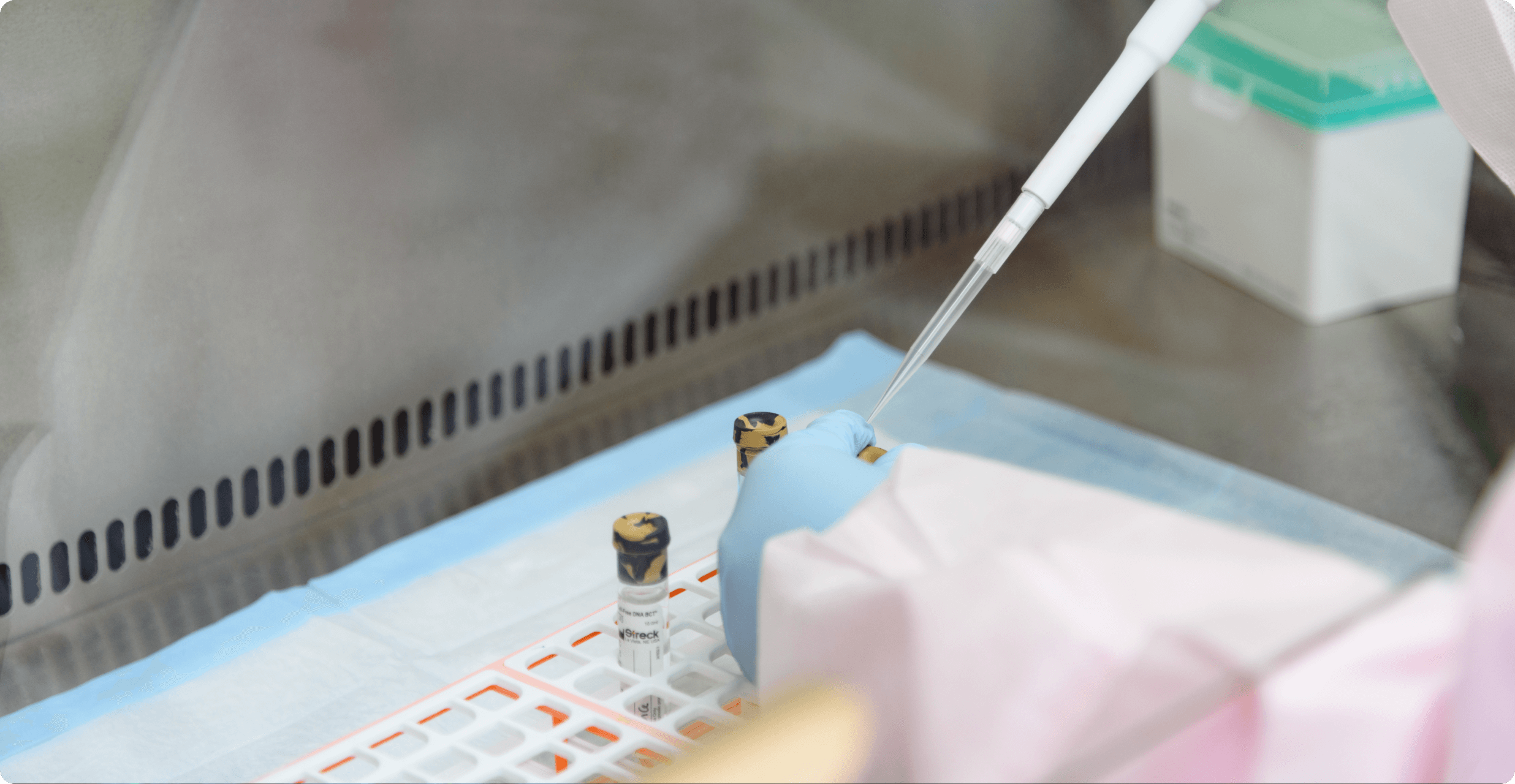Press Release | Apr. 17, 2023
Sysmex Inostics Exhibits at American Association for Cancer Research Annual Meeting 2023 in Orlando

Baltimore, MD, 2021.06.02 – Sysmex Inostics, Inc., a global leader in the liquid biopsy revolution for oncology, is presenting the poster entitled, “Ultra-sensitive detection and quantification of human papillomavirus (HPV) DNA in the plasma of patients with oropharyngeal squamous cell carcinoma (OPSCC) enrolled in the OPTIMA 2 treatment de-escalation trial” at the 2021 ASCO Annual Meeting, June 4-8, 2021. The featured data show that Plasma-Safe-SeqS cfHPV-DNA Test (HPV-SEQ) exhibits robust quantitative detection of cell-free HPV DNA (cfHPV-DNA) across a broad dynamic range, enabling high-resolution monitoring for patients with HPV+ OPSCC, a type of head and neck cancer. The ASCO presentation coincides with the launch of HPV-SEQ as the newest CLIA validated assay in the Sysmex Inostics portfolio of ultra-sensitive Plasma-Safe-SeqS NGS panels.
HPV 16 and HPV 18 are the two most common high-risk HPV strains, and persistent infections can lead to HPV-related cancers, including cervical, anal, and head and neck cancers. HPV driven tumors are increasing in prevalence, especially in patients presenting with head and neck cancer.1 cfHPV-DNA can be measured in patients’ plasma as a non-invasive surrogate of tumor burden and can facilitate precise tracking of disease response throughout treatment.
Sysmex Inostics has introduced HPV-SEQ, an ultra-sensitive blood-based liquid biopsy solution for identifying and accurately quantifying circulating HPV 16 and HPV 18 DNA in patients with HPV-related cancers.
As patients with HPV-driven tumors often have a good prognosis, clinical investigators have recently explored new strategies for treatment de-escalation to avoid unnecessary side-effects caused by overtreatment. Important clinical data for HPV-SEQ was generated during the recent OPTIMA 2 phase II trial (NCT03107182) investigating induction chemoimmunotherapy followed by risk/response stratified de-escalated locoregional therapy for patients with HPV+ OPSCC. During the trial, HPV-SEQ was employed to evaluate levels of cfHPV-DNA alongside patients’ radiographic response to therapy in order to assess the future utility in guiding treatment de-escalation strategies. HPV-SEQ showed robust quantitative detection of HPV 16/18 across a broad dynamic range over five orders of magnitude with low quantitative variability. Importantly, a high correlation was observed between dynamic changes in patients’ cfHPV DNA levels and radiographic responses following induction therapy.
“HPV-SEQ exhibits robust quantitative detection of HPV, even when only a few copies are present, thus potentially enabling precise molecular monitoring of patients’ therapy response,” said Dr. Nishant Agrawal, Professor of Surgery at the University of Chicago. Dr. Agrawal added, “We see the HPV-SEQ test becoming an important tool for refining patient treatment strategies and accelerating the development of novel de-escalation approaches for the treatment of HPV-associated OPSCC.”
Poster number 6048, “Ultra-sensitive detection and quantification of HPV DNA in the plasma of patients with oropharyngeal squamous cell carcinoma (OPSCC) enrolled in the OPTIMA 2 treatment de-escalation trial,” presented by Hillary Sloane, PhD, Associate Director of Medical & Scientific Affairs at Sysmex Inostics, will be available June 4 through June 8, 2021 during the 2021 ASCO Annual Meeting.
Currently, HPV-SEQ is being used in prospective studies to further evaluate the kinetics of cfHPV-DNA as a predictor of response to therapy in patients with HPV+ OPSCC and other HPV-related cancers. HPV-SEQ is CLIA-validated and available to support clinical trials through the Sysmex Inostics turnkey testing service in their CLIA lab located in Baltimore, Maryland.
1. Van Dyne EA, Henley SJ, Saraiya M, Thomas CC, Markowitz LE, Benard VB. Trends in Human Papillomavirus–Associated Cancers — United States, 1999–2015. MMWR Morb Mortal Wkly Rep 2018;67:918–924.
About Sysmex Inostics
Sysmex Inostics, a Sysmex Corporation subsidiary, empowers discoveries in oncology by providing investigators cost-effective and ultra-sensitive quantitative liquid biopsy solutions, OncoBEAM™ (digital PCR) and Plasma-Safe-SeqS (NGS).
Developed by experts at Johns Hopkins with the philosophy of “no molecule left behind,” these technologies are optimized to ensure the detection of low-frequency mutant molecules (<0.05% MAF) with a high degree of specificity. Focused and flexible genomic coverage allows for superior sensitivity and reduced costs.
As pioneers in blood-based circulating tumor DNA (ctDNA) mutation detection, Sysmex Inostics has provided custom assays and CLIA-certified lab services to leading BioPharma companies over the last ten years to help develop therapeutics to extend lives and companion diagnostics to monitor progression, identify targetable resistance alterations, and detect minimal residual disease (MRD).
Sysmex Inostics’ OncoBEAM™ and Plasma-Safe-SeqS services are readily available and customizable to support clinical trials and research in oncology. OncoBEAM™ tests are available through a CLIA-certified laboratory for routine clinical analysis and distributed kit products in the E.U.
Sysmex Inostics’ U.S. headquarters and CLIA-certified, GCP Clinical Laboratory is located in Baltimore, Maryland. Sysmex Inostics’ European headquarters for research & development and GCP laboratory testing is located in Hamburg, Germany.
For more information, refer to www.sysmex-inostics.com or email info@sysmex-inostics.com.
Contact
Tracy Vandenbroek
Director, Marketing
Sysmex Inostics
+1.512.791.2899
vandenbroek.tracy@sysmex-inostics.com